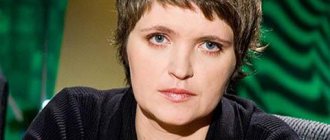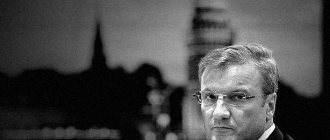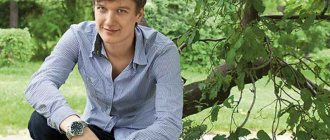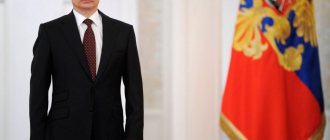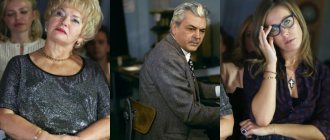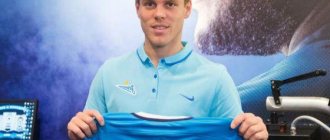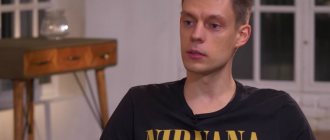The childhood and youth of Anatoly Chubais
Anatoly Chubais, born into a military family, learned all the “delights” of garrison life from childhood.
Father, Boris Matveevich Chubais, became a retiree with the rank of colonel and taught students of the Leningrad Mining Institute the philosophy of Lenin and Marx. Mother, Raisa Khamovna Sagal, had an extraordinary mind, had a specialty in economics, however, she never worked, devoting herself to the family and raising her sons. The mother paid attention to the multifaceted development of the boy, as well as his brother Igor, who in the future became a Doctor of Philosophy, professor of the Department of Social Philosophy of the Faculty of Humanities and Social Sciences of the RUDN University.
Even at school (the future politician became a first-grader in Odessa), Anatoly preferred exact sciences and came up with all sorts of clever inventions.
Future politician Anatoly Chubais was born into a military family
In the mid-60s, the family lived in Lviv, and in 1967, military service brought the father and the whole family to the city of palaces and museums. In Leningrad, Chubais studied at a school with military-patriotic education.
In the family of a Soviet officer, there were often discussions regarding political and philosophical topics, and young Anatoly was an unwitting witness to the debates that took place between his father and his older brother. This uniquely influenced the young man’s choice and he chose the economics university over the philosophical direction.
Student years and the beginning of Chubais’s career in politics
In 1972, Anatoly became a student at the Leningrad Engineering and Economic Institute named after Palmiro Tolyatti.
He chose the Faculty of Mechanical Engineering. The future ideologist and leader of Russian market reforms and privatization activities graduated from his first alma mater with honors in 1977. Chubais’s work experience began within the walls of his native institute, where he worked as an engineer, assistant and associate professor. At the same time, he was writing a dissertation, which he successfully defended in 1983.
Chubais - March of the Nanists In 1980, Anatoly decided to join the ranks of the Communist Party. At that time, the democratic movement was actively developing in Leningrad. Leningrad economists organized an informal circle, the leader of which was Chubais, along with Grigory Glazkov and Yuri Yarmagaev. The fruit of their joint work was the scientific work “Improving the management of scientific and technological progress in production.”
Members of the circle also included future Deputy Prime Minister Alexei Kudrin, President of the Banking House "St. Petersburg" Vladimir Kogan, the late Vice-Governor of St. Petersburg Mikhail Manevich, as well as older brother Igor.
[edit] Chubais as a meme
| « | Anatoly Borisovich Chubais remains such a very necessary figure for us, to whom public opinion is constantly distracted when something is not liked. | » |
| — Putin | ||
| « | - Dad, our cat got hit by a car!!! - Uuuuu, damned Chubais!!! - What are you talking about, dad? What does Chubais have to do with it? - What are you talking about? Such grief, but Chubais had nothing to do with it?! | » |
| — Onekdot | ||
| ◄ ► |
Yeltsin's doll guarantees that Chubais is to blame...and Timurka too Vladimir Vladimirovich™ about Chubais and the CIA Song about Chubais March of onanists.
Almost. By the way, Channel One Visiting Vanya Urgant In this country, Anatoly Borisovich Chubais has long become a meme. All state employees, pensioners and other socially vulnerable citizens believe (not without reason) that Chubais is to blame for all their troubles. As confirmation, you can quote the EBNa doll from the famous program: “Chubais is to blame for everything.”
This is what is written in the “Mythological Dictionary”, ed. D. S. Likhacheva, B. A. Rybakova and others, pp. 999‒1000. M., “Science”, 1996:
| Chubais (chubas, chubys, chubais, red imp) in the lower mythology of the Great Russians and Latgalians is a small, malicious house spirit. Ch. was represented in the form of a pot-bellied red rat “with a face like a human.” He moves into houses at the behest of evil sorcerers, extinguishes the fire in the hearth, demanding a ransom of grain (“he will take everything from the barns, sweep it from the bottoms”) and animals (“what moos and bleats, clucks and barks, a cow and a dog - drive them into the gullies, chicken and goat - to my lair"), but not because he wants to eat, but then to make people starve. “He eats neither life nor meat, drinks neither beer nor kvass, but feeds on human misfortune.” Ch. first settles in one hut, but if he doesn’t survive, he can “empty the whole volost.” <…> There is a well-known cycle of fairy tales about the victory of a wandering hero over Ch. The hero (a blacksmith, a soldier or a “passerby” without specifying his occupation) ends up in a house (in a village) where Ch. is rampaging: “Why, good people, in the cold you sit in the hut in the dark, eat dry crust - “Chubai’s fire started to burn.” The hero decides to fight the demon and lights a candle at midnight. An enraged Ch. appears and demands a ransom, threatening to put out the fire. “Try it,” says the hero, “you probably won’t even be able to use a thimble.” Ch. climbs into the thimble, the hero covers it with a candle, “Nikolin’s image of a burning one,” and then crushes it with a hammer and throws it into the swamp (blacksmith) or loads it into a gun and shoots “into the white light” (soldier).” (Kikimors are children cursed by their parents, Ch. is a “whore’s miscarriage”). |
Recognition among the people.
According to messages from the Echo Matzo forum, there is no such dictionary and there could not be: Likhachev and Rybakov have different schools, and the first one dealt not with mythology, but with ancient Russian literature; they did not have a common vocabulary. It is interesting that there are a huge number of links to this “dictionary” on the Internet, but the texts are different, although the links to the same pages are 999-1000!
In the “Mythological Dictionary” (a hefty volume) edited by A. M. Prokhorov (and about 20 other co-authors, including D. S. Likhachev) published in 1992, there is no such word. There are no “Chubais” in Dahl’s dictionary, although all the other evil spirits (goblin, ghouls, brownies...) are there. This and similar words are not found in the fundamental work “Myths of the Peoples of the World” (in two huge volumes). The same is in the book by S.V. Maksimov “The Unclean, Unknown and Power of the Cross” (1981, reprint of the pre-revolutionary edition).
Finally, the book “The Russian people, their customs, rituals, legends, superstitions and poetry.” Collection M. Zabylin, in four parts. Moscow, 1880. There is no “Chubais” there[1].
“Chubys”, however, is present in the book “Paganism of the Ancient Slavs” by Rybakov, the rest was conjectured later.
[edit] Also
- Chubais is the most common nickname in Russia for red dogs, cats, cockroaches and other parasites. In this, only Kolchak can compete with Chubais, after whom dogs are still named in Siberia.
- “Chu-ba-bais” is a powerful spell that cuts out all electricity within a 10 km radius in another book - a parody of “Harry Potter”.
- In the game “Space Rangers. Dominators: Reboot" you can receive a quest to destroy a certain pirate Bachoys.
Political career of Anatoly Chubais
In 1990, Anatoly Chubais took the post of deputy chairman of the executive committee of the Leningrad City Council, and a little later became first deputy.
In 1991, the mayor of the city, Anatoly Sobchak, invited him to the position of chief economic adviser. Possessing a talent as a politician and a brilliant analytical mind, Chubais rapidly moved up the career ladder. In November 1991, he was appointed chairman of the Russian State Committee for State Property Management. And already in 1992, President Boris Yeltsin entrusted him with the post of Deputy Prime Minister. IN
During 1992, Chubais created a privatization program, which resulted in the privatization of 127,000 enterprises by early 1997. An extraordinary meeting of shareholders decided to elect Chubais to the Board of Directors. Also in 1998, he became chairman of the board.
Anatoly Chubais. Exclusive interview. In politics, Anatoly Chubais is a prominent figure. He went through the path of a State Duma deputy from the “Choice of Russia”, was the creator of the “Civil Society Foundation”, which predetermined the work of a group of analysts of Yeltsin’s election headquarters.
Before the Duma elections in June 2003, he became one of the top three leaders of the Union of Right Forces, but the party suffered defeat. After resigning from the post of party chairman, he was a member of the federal political council, and in November 2008, the Right Cause political party accepted him into the Supreme Council.
Now Anatoly Borisovich Chubais is the head of Rusnano. His political successes and economic achievements are appreciated by the domestic and world community. The private American Institute for the Study of East and West Studies awarded him the 1994 Outstanding New Artist Award.
The English economic magazine Euromoney named him the best finance minister in the world. He has been awarded many Commendations from the President of Russia and is an Acting State Advisor of the Russian Federation, 1st class. Anatoly Chubais, honorary doctor of the University of Engineering and Economics, St. Petersburg.
Career
From 1977 to 1982, Anatoly worked alternately in such professions as engineer, assistant and associate professor at his university. In the first months of 1977, he joined the CPSU party. Further, he founded a circle of economists among democrats based on their political worldview. Chubais spoke there and conducted seminars. The goal he set for himself with these speeches was to popularize democratic principles.
One day, while conducting another seminar, Anatoly meets Yegor Gaidar - in the future known as the head of the Russian Government.
At the end of the 1980s, Chubais became the founder of a club of economists called “Perestroika”. The activities of this club attracted the attention of the leaders of the political elite of St. Petersburg and, above all, Anatoly Sobchak. After he was appointed to the post of chairman of the Leningrad Soviet, he chooses Chubais as his deputy.
Interesting! Biography of Vladimir Vladimirovich Putin
A. Chubais and A. Sobchak
In the fateful 1991, Anatoly Borisovich Chubais was elected chief adviser on economic issues to the mayor's office of Leningrad. There, an economist assembles a special group for a strategy for the development of the Russian economy. In the fall, Chubais becomes head of the Russian State Committee for State Property Management. A real breakthrough in his career was his election as Prime Minister of the Russian Federation during the reign of Boris Yeltsin.
In this position, Anatoly implemented his long-standing economic program, which made him famous. We are talking about privatization, when more than a hundred thousand enterprises were transferred to the private sector. The privatization campaign is still assessed ambiguously by politicians and economists, and the population has an extremely negative attitude towards it. However, if you look closely, despite all the failure of privatization, Russia had no other choice then.
In 1993, Chubais successfully ran for the State Duma from Russia's Choice, a center-right party. In November, he takes up a high position - becoming the first prime minister. The Federal Securities and Exchange Commission appoints him as its head.
Since then, the name of Anatoly Borisovich Chubais began to sound everywhere, many began to be interested in his nationality and biography, since he achieved real success. However, society is increasingly beginning to view him with a negative attitude.
During the presidential elections, Chubais becomes the head of Yeltsin's election campaign. He creates the “Civil Society Foundation” with the aim of increasing Boris Yeltsin’s rating among the population. The Foundation successfully completed its tasks, therefore, after winning the elections, the President gave Chubais the post of head of the Presidential Administration.
In the photo A.B. Chubais in the 90s.
In 1997, Anatoly became Prime Minister of Russia for the second time and also held the post of Minister of Finance. In 1998, Chubais left his position. However, he does not remain idle - Anatoly Borisovich manages the Russian joint-stock company “Unified Energy System of Russia”. In this company, Chubais is also involved in transferring shares into private hands. However, his colleagues did not approve of this, noting some of the failure of his reforms.
The company was liquidated 11 years later, Anatoly Borisovich becomes the director of a state-owned corporation called the Russian Nanotechnology Corporation. Chubais began to re-register the corporation into an open joint-stock company. Under his leadership, it quickly reached the top and became the main innovative company in Russia.
Interesting! Biography of Sergei Chemezov
In the photo: A. B. Chubais
Personal life, Anatoly Chubais today
From his first marriage, Anatoly Chubais had a son, Alexey, and a daughter, Olga.
Both chose the economic direction. In 1989, the marriage broke up, however, material support from the ex-husband and father remained decent. In 1990, Chubais married Maria Vishnevskaya for the second time. His wife supported Anatoly during his rapid career growth and, as expected, was a support in both joy and sorrow.
Working in a hospice and interacting with terminally ill patients left an imprint on the woman’s mental health. This affected the personal life of the spouses. Treatment in the most prestigious clinics was unsuccessful. After 21 years of marriage they separated. All property remained to Maria Vishnevskaya.
Anatoly Chubais with his third wife Avdotya Smirnova
In January 2012, Chubais formalized his relationship with his third wife, the famous TV presenter Avdotya Smirnova. The public's attitude towards the politician's attempt to start life anew after 50 is ambiguous.
However, this does not prevent him from being happy, enjoying active recreation and keeping up to date with the news of the World Wide Web. As before, Chubais loves listening to Vysotsky and the Beatles, Yuri Vizbor and Bulat Okudzhava. In cinema, he prefers films by Kira Muratova, Andrei Tarkovsky and Leonid Gaidai.
Personal life
The politician’s personal life turned out to be eventful. He got married for the first time while a student. His chosen one was Lyudmila, who bore him two children - Olga and Alexei. They followed in their father's footsteps, becoming professional economists.
In the early 90s, the hero of our article divorces Lyudmila and marries a second time. During his rapid career growth in modern Russia, he is accompanied by economist Maria Vishnevskaya, but this marriage also broke up.
TV presenter and screenwriter Avdotya Smirnova becomes the politician’s third wife. This marriage, which he entered into after 50 years, was received ambiguously by society; the new wife was fourteen years younger than her husband.
For Avdotya, this marriage became the second. From 1989 to 1996 she was married to St. Petersburg art critic Arkady Ippolitov, with whom she gave birth to a son, Danila, in 1990. He studied at the Zenit football school and became the world champion in beach soccer as a member of the Russian national team. At the moment, he has finished his sports career, works as a producer, having received a diploma from the University of Film and Television.
Chubais and Smirnova have been married since 2012.


